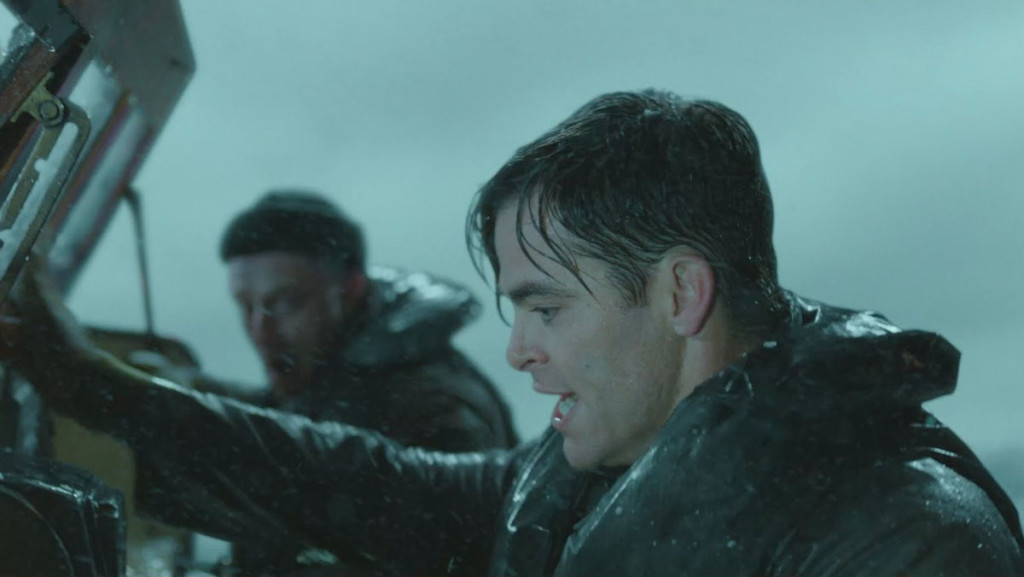Though it champions a story structure that’s been used many times before, “The Finest Hours” is a rescue story buoyed by some terrific maritime action sequences and very good acting performances.
“The Finest Hours” tells the true story of the dangerous operation undertaken by the U.S. Coast Guard to rescue the crew of a sinking T2 tanker that had been split in half by a powerful storm off the coast of Cape Cod. Bernard “Bernie” Webber (Chris Pine) of the Chatham, Massachusetts, Coast Guard is sent out with a team of three other men on a boat, through life-threatening waves and in the face of all odds, to save them.
On the SS Pemberton, the split tanker lost at sea, the crew grows increasingly desperate. The ship’s engineer, Ray Sybert (Casey Affleck), takes charge of the men on board, and they work together to survive against a ticking clock and little hope of rescue.
The events of “The Finest Hours” played out as one would expect in an action-packed rescue film. For even the most casual moviegoers, there should be no surprises in this film.
Though its material is well-trodden and its sequence of events predictable, the performances largely salvage this vessel of a film. Pine plays his character beautifully, acting as a timid, soft-spoken Coast Guardsman, and his fellow seaman Richard Livesey (Ben Foster) is always engaging to watch. Although his role is small, Foster is such a brilliant actor, and he embodies the part with enough personality and grit, that he gives weight to the character’s moments of silence and teases out something deeper about Richard than the film cares to show.
On his sinking half of a tanker, Affleck gives a commanding performance as the reluctant leader. Graham McTavish plays another crewman — a big, burly man with unrelenting loyalty — and carries a great physical presence.
The film takes a while to build up steam, kicking things off with romance between Bernie and his future wife, Miriam (Holliday Grainger). For a long time, the film dwells on this love story, and cute though it is, there’s a curious absence of maritime adventure in the first segment of this maritime adventure film. But when that halved tanker whisks Bernie away on the mission of a lifetime, the films kicks into gear, slowing down only to pop back to the mainland to check in on Miriam.
“The Finest Hours” excels most when its characters are against seemingly insurmountable odds. There’s a tremendously well executed sequence halfway through the film in which Bernie and crew attempt to cross “the bar,” a bit of sea known for its enormous, deadly waves during storms. The camerawork is fluid, following the small boat as it dives through waves, as it’s submerged underwater and comes up again, speeding over the next wall of water. Carter Burwell’s score swells and pulses, growing louder and more intense, then turns toward stillness instead of excitement, rising and falling like the waves and adding to the dramatic sequences in a powerful way.
“The Finest Hours” is very reminiscent of Steven Spielberg’s recent “Bridge of Spies,” and not just because both movies take place in winter and feature plenty of snow. Both films have very little conflict between characters. Sure, there’s the character on the tanker who believes that it should be “every man for himself” before Affleck’s engineer character steps in, but the rest of the movie shows unity in all of the characters. The characters are battling fate instead of each other.
The film chooses to focus on men trying to keep their heads up, trying to stay afloat, in situations that threaten to sink them. The story doesn’t need a villain. The tale worth telling in “The Finest Hours” is one of honorable sacrifice, brave heroics and man’s overwhelming propensity to fight like hell to survive. It’s a story audiences have seen a dozen times, and many films have probably executed it better than “The Finest Hours,” but the performances alone keep this ship from sinking.








